
LGBT
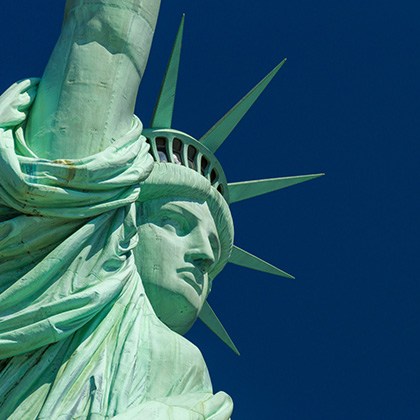
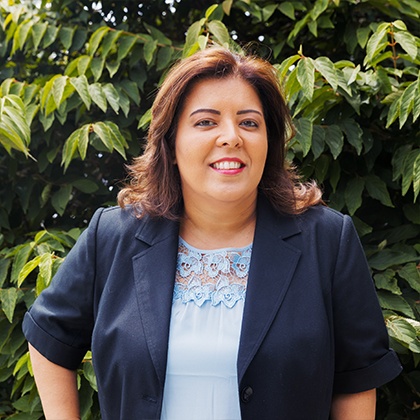 Tides sat down with Senior Advisor Alex Rojas to talk about her personal journey as a former undocumented person from Dominican Republic, and how she uses that experience to bring respect and resources to immigration reform. Alex Rojas has been an advisor at Tides since 2012.
Tides sat down with Senior Advisor Alex Rojas to talk about her personal journey as a former undocumented person from Dominican Republic, and how she uses that experience to bring respect and resources to immigration reform. Alex Rojas has been an advisor at Tides since 2012.
In 1982—at the age of 12—I moved to New York City from Dominican Republic, and I can vividly remember the fears, the secrecy, and the distrust I endured as a young immigrant. To deal with the feelings of disconnection, frustration, and boredom I was experiencing at the time, I eventually started a study club in middle school with the help of my Cuban social studies and mathematics bilingual teachers.
Shortly after, a school friend introduced me to a nonprofit organization that welcomed me with supportive embrace, treated me with respect, and taught me about opportunity. I learned to challenge and channel my fears in order to excel. I learned about self-empowerment and about celebrating my cultural history and identity. I learned to look at myself as a high performing student, proudly bilingual, and full of potential—and not a “scarlet letter-labeled” A for ALIEN: A= aggressor, L=lawless, I= inferior, E= expensive, N= needy.
My story is not uncommon among Latino or other immigrant groups, and more specifically, among Deferred Action for Childhood Arrivals (DACA) recipients today. Our fears, frustrations, and defiance are the same as they ever have been. The country now has a real opportunity to act justly, recognizing how integral immigrants are to its very fabric.
Immigration issues are so important to me because I believe the recent barrage of misinformed attempts to overhaul existing regulation or instill fear are only creating a national—if not global—crisis. Because this rhetoric is divisive and is not who we are, and all of us are responsible for correcting it.
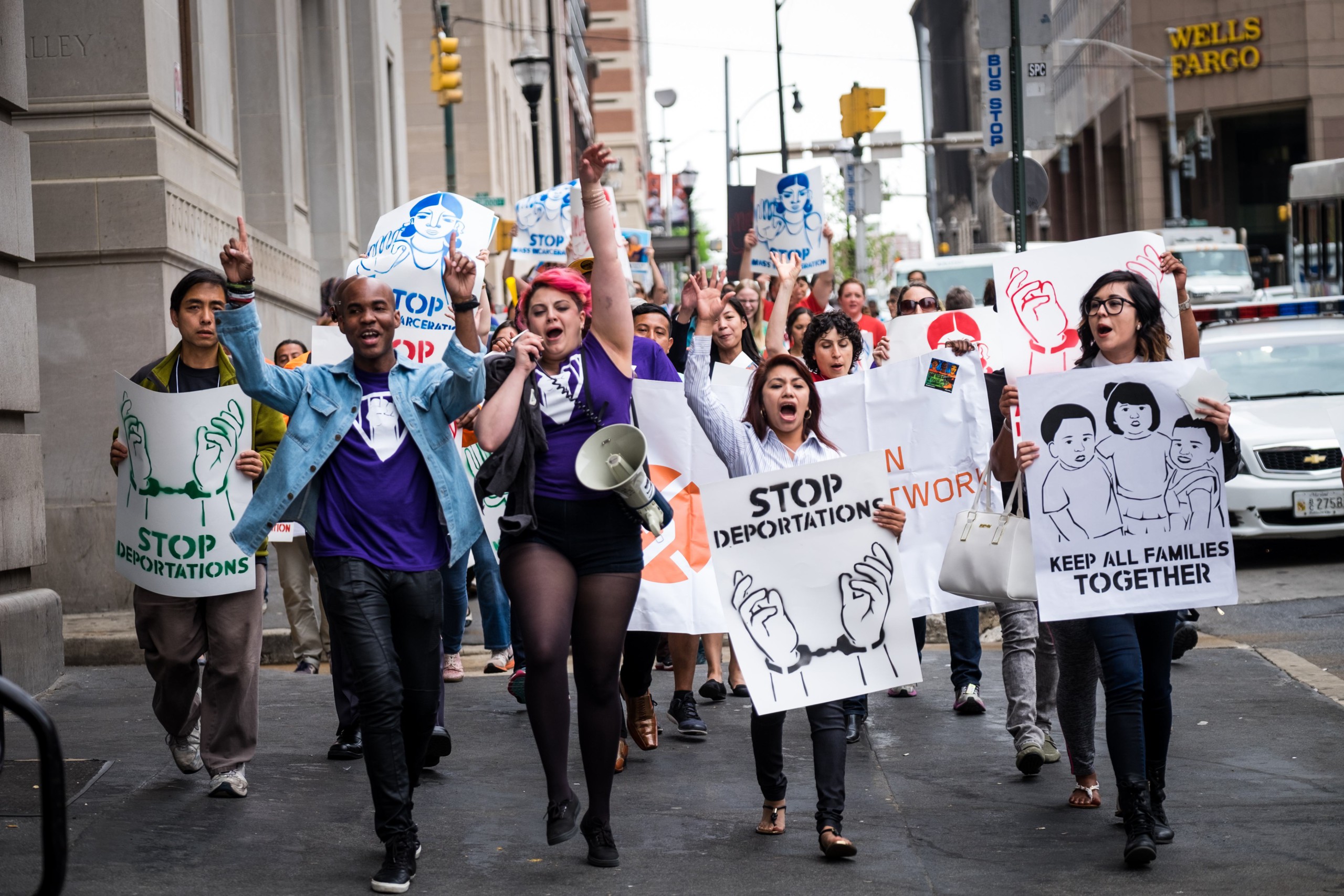
A Detention Watch Network march in Baltimore, photo by Steve Pavey. Click to vote for Detention Watch Network on CREDO Mobile for the month of May!
Since 2012, Tides has facilitated nearly $30 million in grants supporting immigrants and refugees. The majority of these grants focused on addressing grassroots civic participation and human rights.
The current irrational fear as well as actions to introduce anti-immigrant legislation and build walls has led to an extraordinary response from individuals and communities across the nation. Tides works at the nexus of an unrivaled network of funders and changemakers, leveraging all tools available to build a world of shared prosperity and social justice. Both Tides and our community of allies, many of whom are immigrants themselves, are constantly at work lifting our voice to educate, and to be correctly defined—and not just defiant—in our message and our delivery.
Since 2012, Tides has facilitated nearly $30 million in grants supporting immigrants and refugees. The majority of these grants focused on addressing grassroots civic participation and human rights. More than half were domestic in their scope.
So far, our grants for 2018 are similar in focus as grants in previous years, though it’s possible that priorities will shift based on the constantly changing environment and increasing challenges for the immigrant community.
The current environment has also provided the soil for partnership with unusual allies — like the immigration rights community says: bibles, badges, and business. Tides’ allies and grantees embrace a range of actions, including a nonpartisan approach as part of their strategies. When given the opportunity, Tides acts with empathy and respect, we support efforts to focus on what unites us, and highlight how diversity and immigration enrich not only “sanctuary” big cities, but small towns as well.
Every moment is an organizing opportunity, every person a potential activist, every minute a chance to change the world.
Dolores Huerta
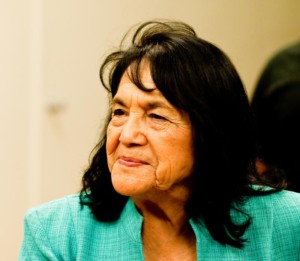
Dolores Huerta, by Patrick Giblin on Flickr
Dolores Huerta, one of the founders of the United Farm Workers movement once said, “Every moment is an organizing opportunity, every person a potential activist, every minute a chance to change the world.” This moment has turned everyday people into “unicorns for change and education,” and the time for sitting on the sidelines is over. The challenges are great and fueled by an ideology that is constantly shifting, erosive and has been simmering for many years.
What is important, real, and genuine is our momentum, our energy, and our rooted desire to educate, coalesce, and protect our values and communities. Our community of changemakers know that our power and our voice matter. The challenges today require solutions that respond to intersectionality and deliver impact at scale to realize lasting solutions. Tides accelerates the pace of social change by supporting the work of our partners who are making smarter and strategic decisions every day:
These groups— many of them Tides social ventures—are a small sample from thousands of organizations, large and small, that are educating, advocating, and replacing the divisive dialogue. They are doing this by increasing communication and transparency as well as building capacity that will protect all of our communities with education, security, training, legal support, and defense.
We also have a unique opportunity in this moment to pivot and to build infrastructure and unity that will sustain us not only around immigration, but on any destructive policy that harms our communities and our future. We need to show up with enhanced tactics, an indivisible spirit, and our vote.
The power and richness of diversity is not a natural connection that everyone makes or accepts easily. So then, how do we capitalize in this moment? How do we accomplish comprehensive immigration reform? What is the framework we need to create to effectively spend our time and resources learning from one another? I believe, as usual, there isn’t a “one-fits-all” answer.
Here is what I know:
Immigrants and immigrant rights activists have been overwhelmed by a daily stream of regressive policy announcements and our human instinct is to respond immediately and instinctively, out of anger and fear. However, it’s heartening to remember we also have a unique opportunity in this moment to pivot and to build infrastructure and unity that will sustain us not only around immigration, but on any destructive policy that harms our communities and our future. We need to show up with enhanced tactics, an indivisible spirit, and our vote.
If the United States is a fabric, its immigrants—legal and undocumented alike—are the threads that tie us together, providing richness and strength, with a renewable source of human energy. Our collective mandate for decency and justice will ultimately drown out irrational bigotry, noise, and hatred.
I feel passionately that we must continue to demand that our leaders, regardless of their party affiliation, respond with comprehensive immigration policies, and remove existing institutional shackles that misrepresent immigrants.
We must challenge our communities, organizations and ourselves to remain open, flexible and exhaustively supportive. We must focus on the fight for dignity, humanity, and the common sense that unites us all. As Americans we can’t become numb to the erosion of our core values.
We need to reclaim our values and use our voice to break down all walls, liberate our American spirit for justice for all, and liberate the “huddled masses, yearning to breathe free.”
For more on Tides work with immigration justice, see our Q & A with Tides Director of Special Initiatives Roxana Shirkhoda: Grantmakers Gather for Immigration Justice or Daring Change in Action: A Conversation with Andrea Granda.

LGBT
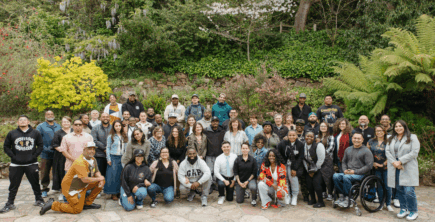
Corporate Partners

Philanthropy

Read the stories and hear the voices of social change leaders fighting for justice.